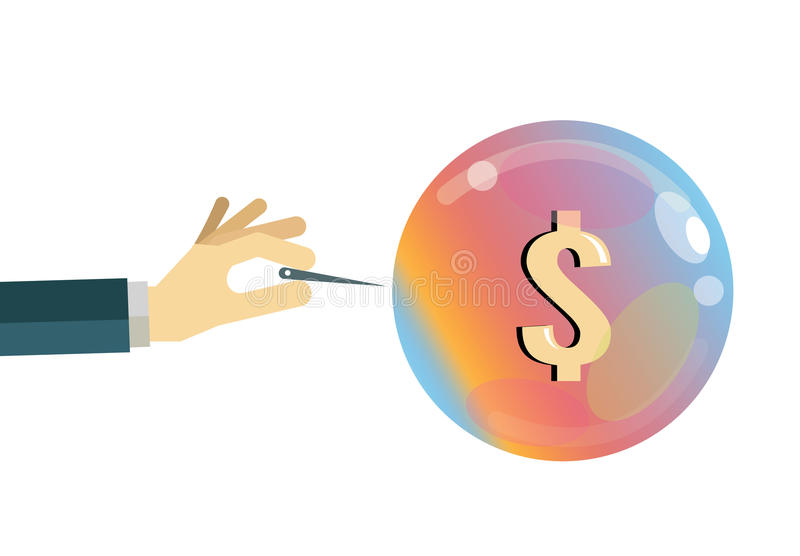
The Forex market can be an exciting and lucrative career. But, not everyone is suited for it. It requires patience, discipline, understanding of the risks and patience. You should take the time to evaluate whether investing in forex markets is right for you.
The forex market has many jobs. There are many options available, from account managers to software developers to analysts. Certain jobs require more knowledge and skills than others. Before you make a decision about your career in forex, do your research.
Analysts are able to provide information about the forex sector, such currency trends or price charts. Analysts are able to analyze and present the variables that have an impact on the currencies' values to traders. They may also offer webinars and educational seminars.
Software developers create forex trading platforms that allow clients to trade online. A bachelor's degree is required in computer science. They must also be proficient with operating systems, programming languages, and web servers. Depending on the company, they may work directly with clients or for brokerage firms.

Account managers make trade decisions for clients, depending on their individual needs. They have a lot to do and need to be professional while also being able achieve sales goals. Additionally, they might be required to learn a second language.
Trading for third parties is another option. Multinational corporations and institutions hire traders who want to hedge against fluctuations of the foreign currency value. People who wish to trade forex can start as an assistant and then progress to the senior levels. These individuals can earn a salary as well as a performance bonus depending on what company they work for.
Marketing coordinators can coordinate logistics between vendors and clients for those who are looking for a more hands on role. They can also plan and implement marketing campaigns that work.
A forex sales representative can help consumers and learn more about the market. They are part of a team that can create accurate delivery dates and keep the marketing director informed.
Forex markets are accessible 24 hours a daily, five days a semaine. Although the forex market is known for being volatile, there are still plenty of opportunities to take part. People who have worked in the market before are more likely find work than those who have not.

Many jobs in Forex are very similar to the ones in the traditional office. These roles may require unusual hours, long working days, or very specific requirements. A career in Forex can be exciting and lucrative, regardless of your interest in accounting, software development, or marketing.
Look at Jobs in Forex for information on how to apply to jobs in the forex sector. Create a job-seeking profile and sign up for email job alerts. Your CV can be securely stored online.
FAQ
What Is a Stock Exchange?
Companies sell shares of their company on a stock market. This allows investors to purchase shares in the company. The market determines the price of a share. It is typically determined by the willingness of people to pay for the shares.
Companies can also raise capital from investors through the stock exchange. Investors are willing to invest capital in order for companies to grow. Investors purchase shares in the company. Companies use their money in order to finance their projects and grow their business.
Stock exchanges can offer many types of shares. Some are known simply as ordinary shares. These shares are the most widely traded. These shares can be bought and sold on the open market. The prices of shares are determined by demand and supply.
Other types of shares include preferred shares and debt securities. When dividends become due, preferred shares will be given preference over other shares. These bonds are issued by the company and must be repaid.
What's the difference between the stock market and the securities market?
The entire list of companies listed on a stock exchange to trade shares is known as the securities market. This includes stocks and bonds, options and futures contracts as well as other financial instruments. There are two types of stock markets: primary and secondary. Stock markets that are primary include large exchanges like the NYSE and NASDAQ. Secondary stock exchanges are smaller ones where investors can trade privately. These include OTC Bulletin Board Over-the-Counter and Pink Sheets as well as the Nasdaq smallCap Market.
Stock markets are important as they allow people to trade shares of businesses and buy or sell them. The price at which shares are traded determines their value. Public companies issue new shares. These newly issued shares give investors dividends. Dividends can be described as payments made by corporations to shareholders.
Stock markets provide buyers and sellers with a platform, as well as being a means of corporate governance. Boards of Directors are elected by shareholders and oversee management. Boards make sure managers follow ethical business practices. If a board fails to perform this function, the government may step in and replace the board.
What's the difference between marketable and non-marketable securities?
The principal differences are that nonmarketable securities have lower liquidity, lower trading volume, and higher transaction cost. Marketable securities on the other side are traded on exchanges so they have greater liquidity as well as trading volume. Marketable securities also have better price discovery because they can trade at any time. This rule is not perfect. There are however many exceptions. For instance, mutual funds may not be traded on public markets because they are only accessible to institutional investors.
Non-marketable securities tend to be riskier than marketable ones. They are generally lower yielding and require higher initial capital deposits. Marketable securities are typically safer and easier to handle than nonmarketable ones.
A large corporation may have a better chance of repaying a bond than one issued to a small company. This is because the former may have a strong balance sheet, while the latter might not.
Marketable securities are preferred by investment companies because they offer higher portfolio returns.
Are bonds tradeable
Yes, they are. Bonds are traded on exchanges just as shares are. They have been for many, many years.
You cannot purchase a bond directly through an issuer. A broker must buy them for you.
This makes buying bonds easier because there are fewer intermediaries involved. You will need to find someone to purchase your bond if you wish to sell it.
There are many types of bonds. While some bonds pay interest at regular intervals, others do not.
Some pay quarterly interest, while others pay annual interest. These differences make it easy for bonds to be compared.
Bonds can be very useful for investing your money. For example, if you invest PS10,000 in a savings account, you would earn 0.75% interest per year. The same amount could be invested in a 10-year government bonds to earn 12.5% interest each year.
You could get a higher return if you invested all these investments in a portfolio.
Statistics
- US resident who opens a new IBKR Pro individual or joint account receives a 0.25% rate reduction on margin loans. (nerdwallet.com)
- For instance, an individual or entity that owns 100,000 shares of a company with one million outstanding shares would have a 10% ownership stake. (investopedia.com)
- Even if you find talent for trading stocks, allocating more than 10% of your portfolio to an individual stock can expose your savings to too much volatility. (nerdwallet.com)
- The S&P 500 has grown about 10.5% per year since its establishment in the 1920s. (investopedia.com)
External Links
How To
How to open a trading account
Opening a brokerage account is the first step. There are many brokers that provide different services. There are many brokers that charge fees and others that don't. Etrade, TD Ameritrade Fidelity Schwab Scottrade Interactive Brokers are some of the most popular brokerages.
After you have opened an account, choose the type of account that you wish to open. Choose one of the following options:
-
Individual Retirement Accounts (IRAs)
-
Roth Individual Retirement Accounts (RIRAs)
-
401(k)s
-
403(b)s
-
SIMPLE IRAs
-
SEP IRAs
-
SIMPLE 401 (k)s
Each option has different benefits. IRA accounts provide tax advantages, however they are more complex than other options. Roth IRAs allow investors to deduct contributions from their taxable income but cannot be used as a source of funds for withdrawals. SEP IRAs are similar to SIMPLE IRAs, except they can also be funded with employer matching dollars. SIMPLE IRAs have a simple setup and are easy to maintain. They enable employees to contribute before taxes and allow employers to match their contributions.
The final step is to decide how much money you wish to invest. This is your initial deposit. Most brokers will offer you a range deposit options based on your return expectations. You might receive $5,000-$10,000 depending upon your return rate. The lower end of the range represents a prudent approach, while those at the top represent a more risky approach.
You must decide what type of account to open. Next, you must decide how much money you wish to invest. Each broker has minimum amounts that you must invest. These minimum amounts vary from broker-to-broker, so be sure to verify with each broker.
You must decide what type of account you want and how much you want to invest. Next, you need to select a broker. Before choosing a broker, you should consider these factors:
-
Fees: Make sure your fees are clear and fair. Many brokers will try to hide fees by offering free trades or rebates. However, many brokers increase their fees after your first trade. Don't fall for brokers that try to make you pay more fees.
-
Customer service – Look for customer service representatives that are knowledgeable about the products they sell and can answer your questions quickly.
-
Security - Make sure you choose a broker that offers security features such multi-signature technology, two-factor authentication, and other.
-
Mobile apps: Check to see whether the broker offers mobile applications that allow you access your portfolio via your smartphone.
-
Social media presence. Find out whether the broker has a strong social media presence. If they don’t, it may be time to move.
-
Technology - Does the broker utilize cutting-edge technology Is the trading platform simple to use? Are there any glitches when using the system?
Once you've selected a broker, you must sign up for an account. Some brokers offer free trials, while others charge a small fee to get started. After signing up, you'll need to confirm your email address, phone number, and password. Then, you'll be asked to provide personal information such as your name, date of birth, and social security number. Finally, you'll have to verify your identity by providing proof of identification.
Once you're verified, you'll begin receiving emails from your new brokerage firm. You should carefully read the emails as they contain important information regarding your account. For instance, you'll learn which assets you can buy and sell, the types of transactions available, and the fees associated. Also, keep track of any special promotions that your broker sends out. These promotions could include contests, free trades, and referral bonuses.
Next is opening an online account. Opening an online account is usually done through a third-party website like TradeStation or Interactive Brokers. Both websites are great resources for beginners. When you open an account, you will usually need to provide your full address, telephone number, email address, as well as other information. After all this information is submitted, an activation code will be sent to you. To log in to your account or complete the process, use this code.
Once you have opened a new account, you are ready to start investing.